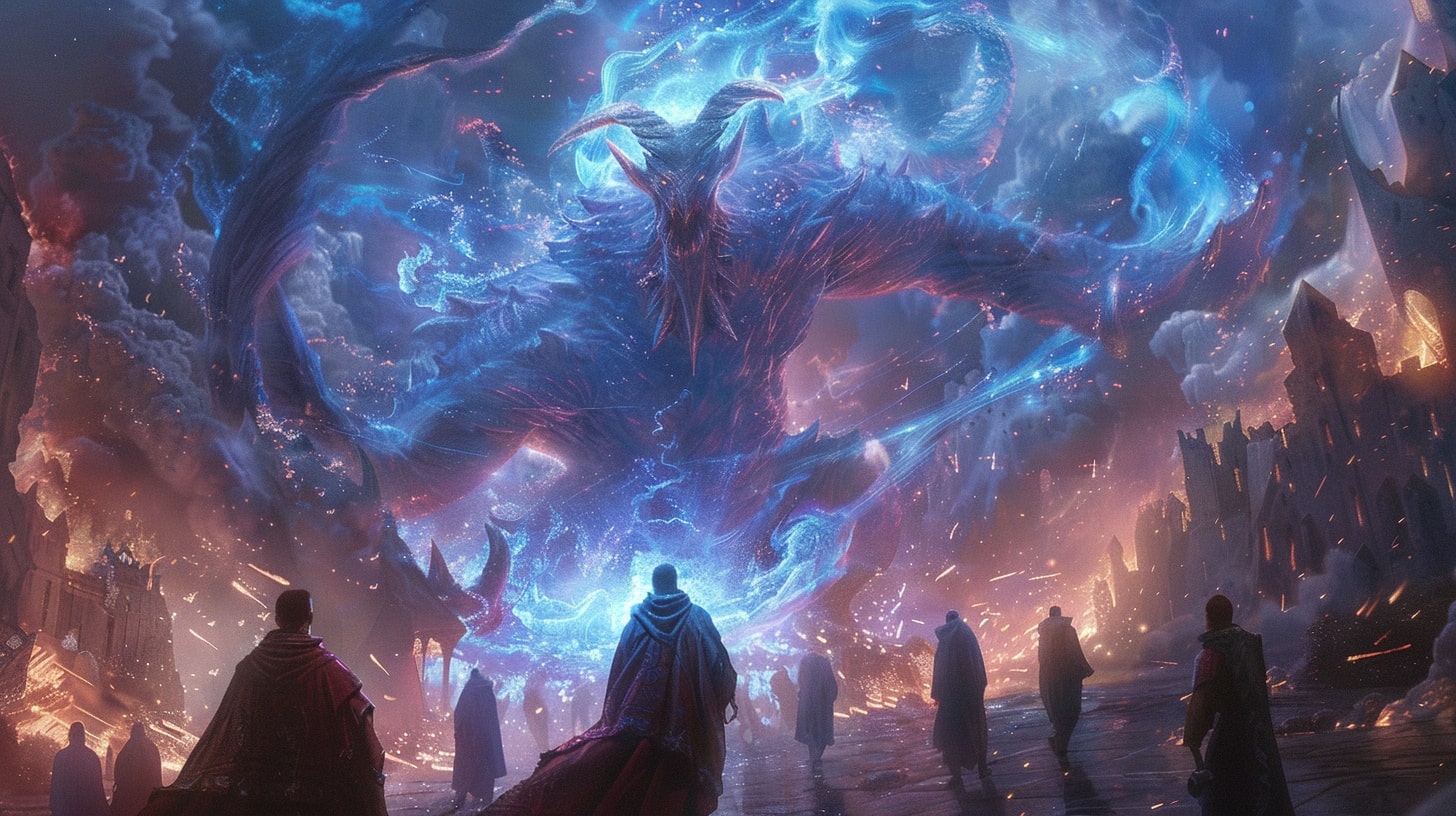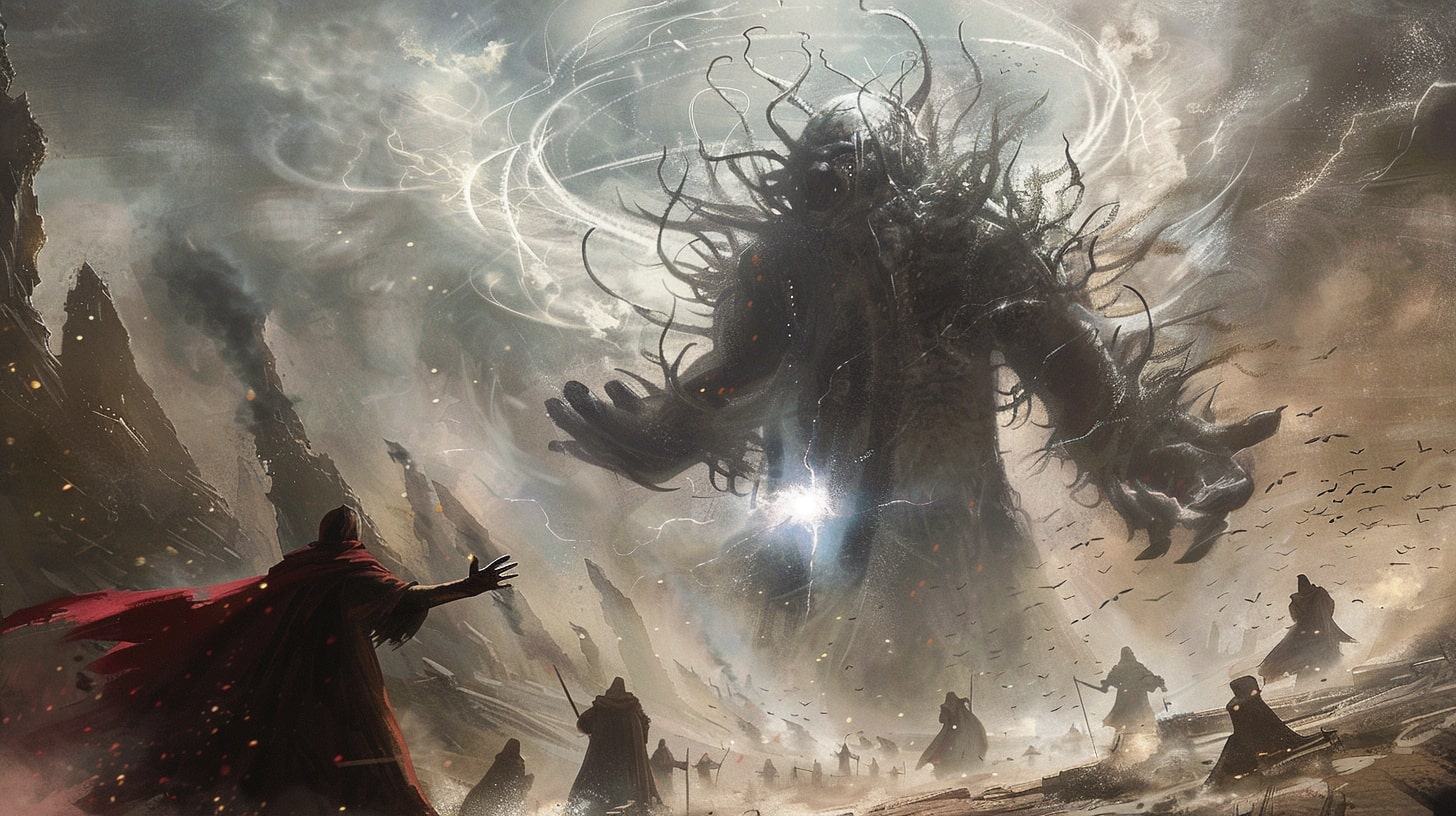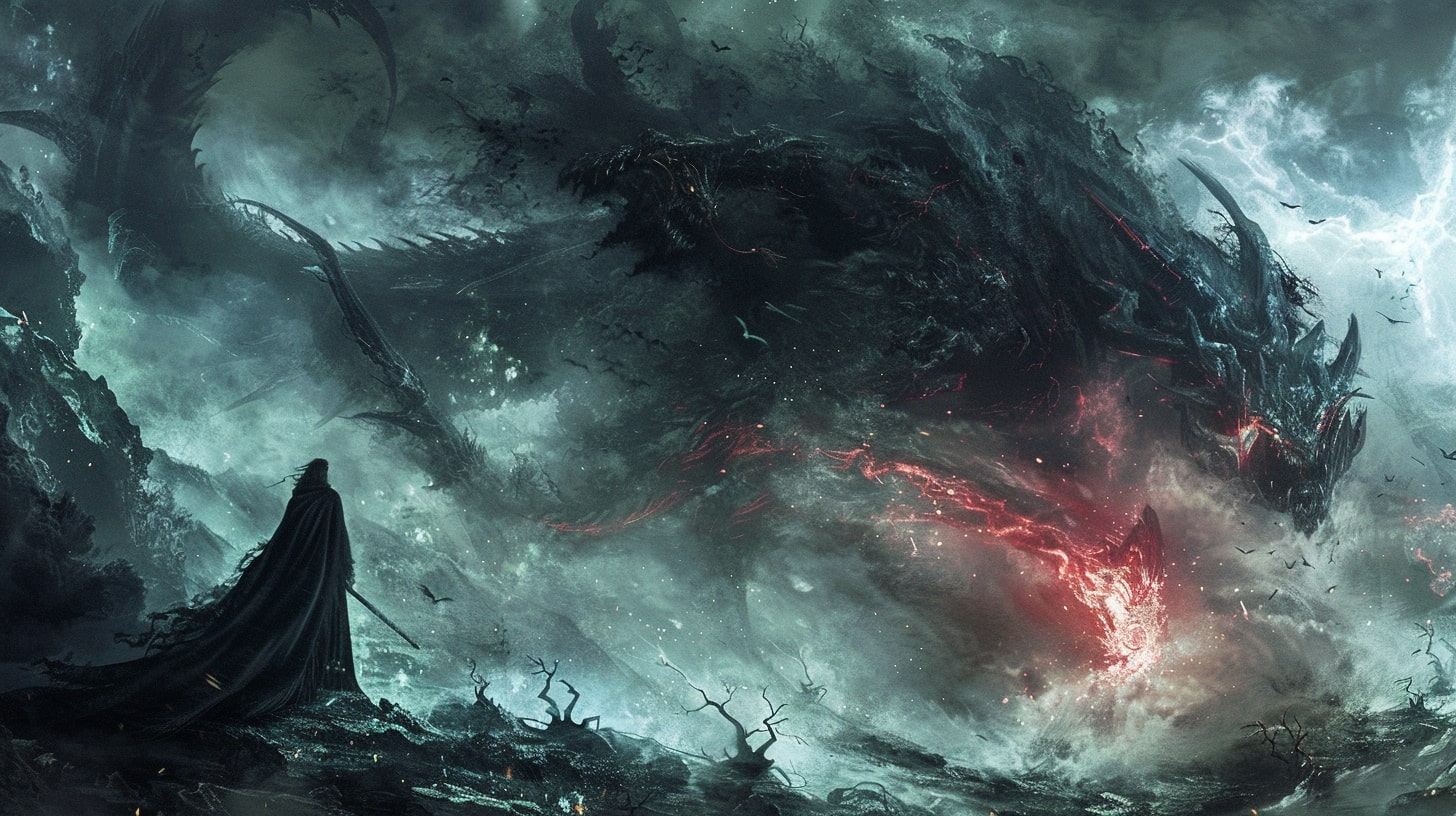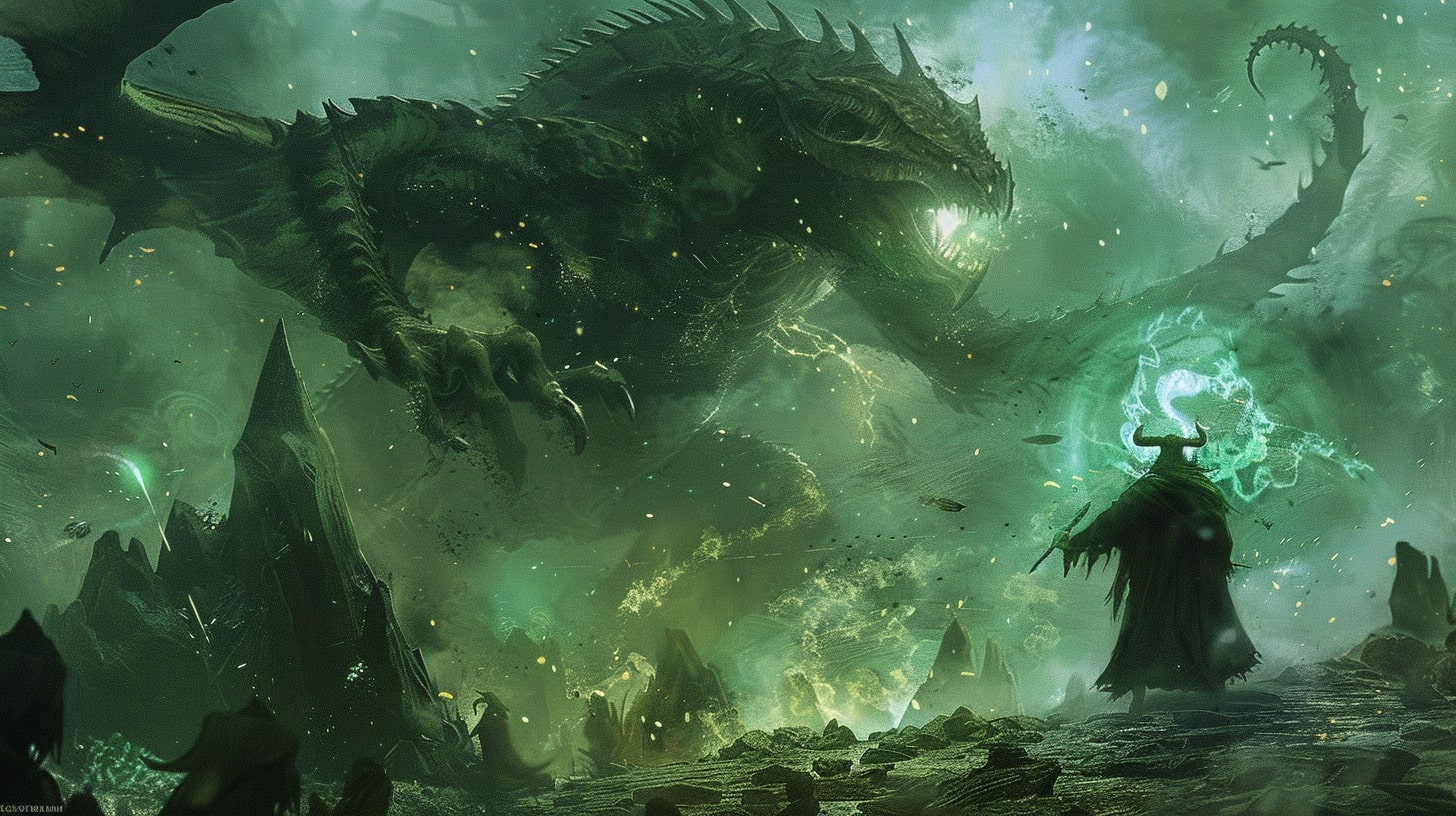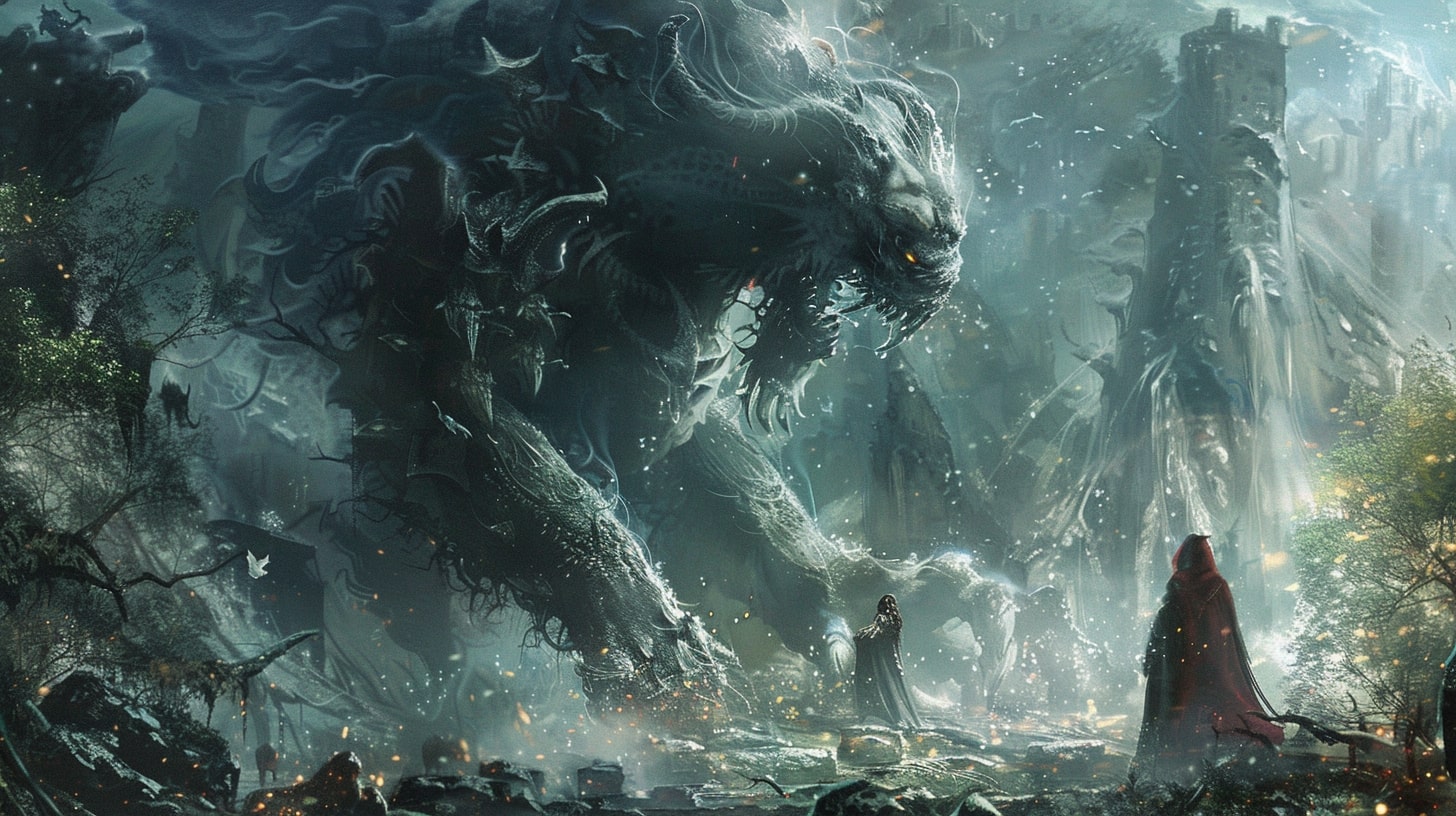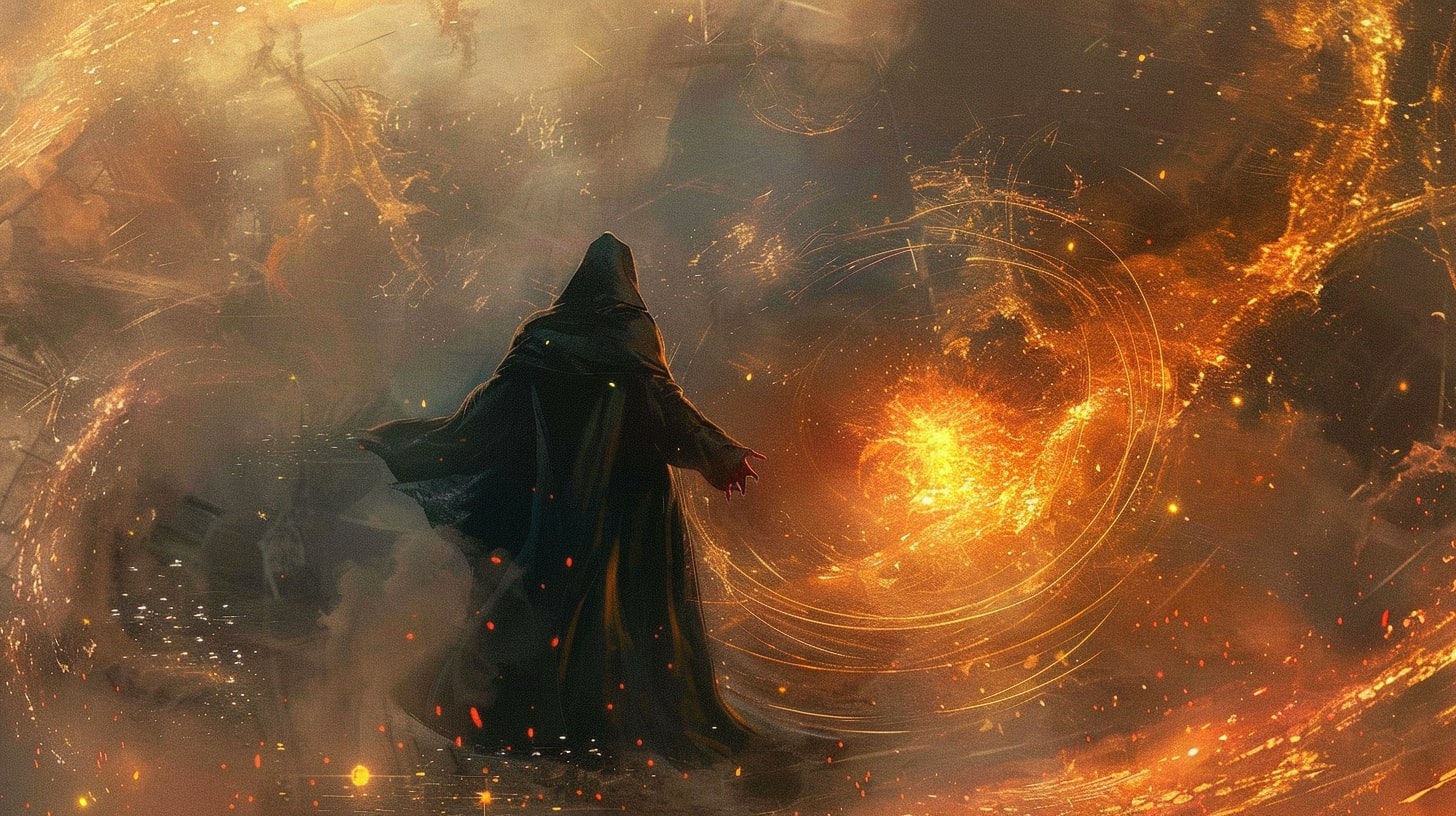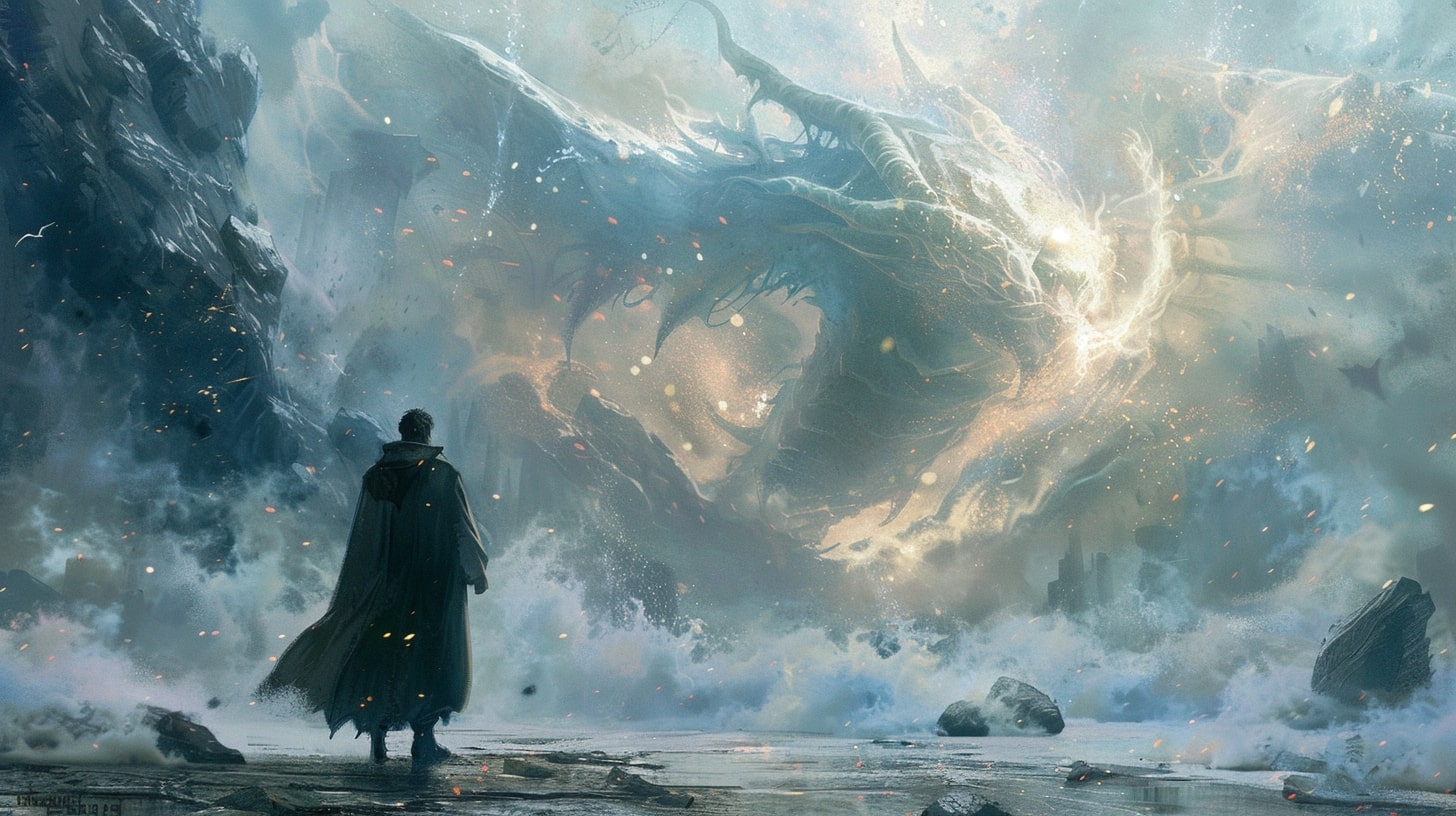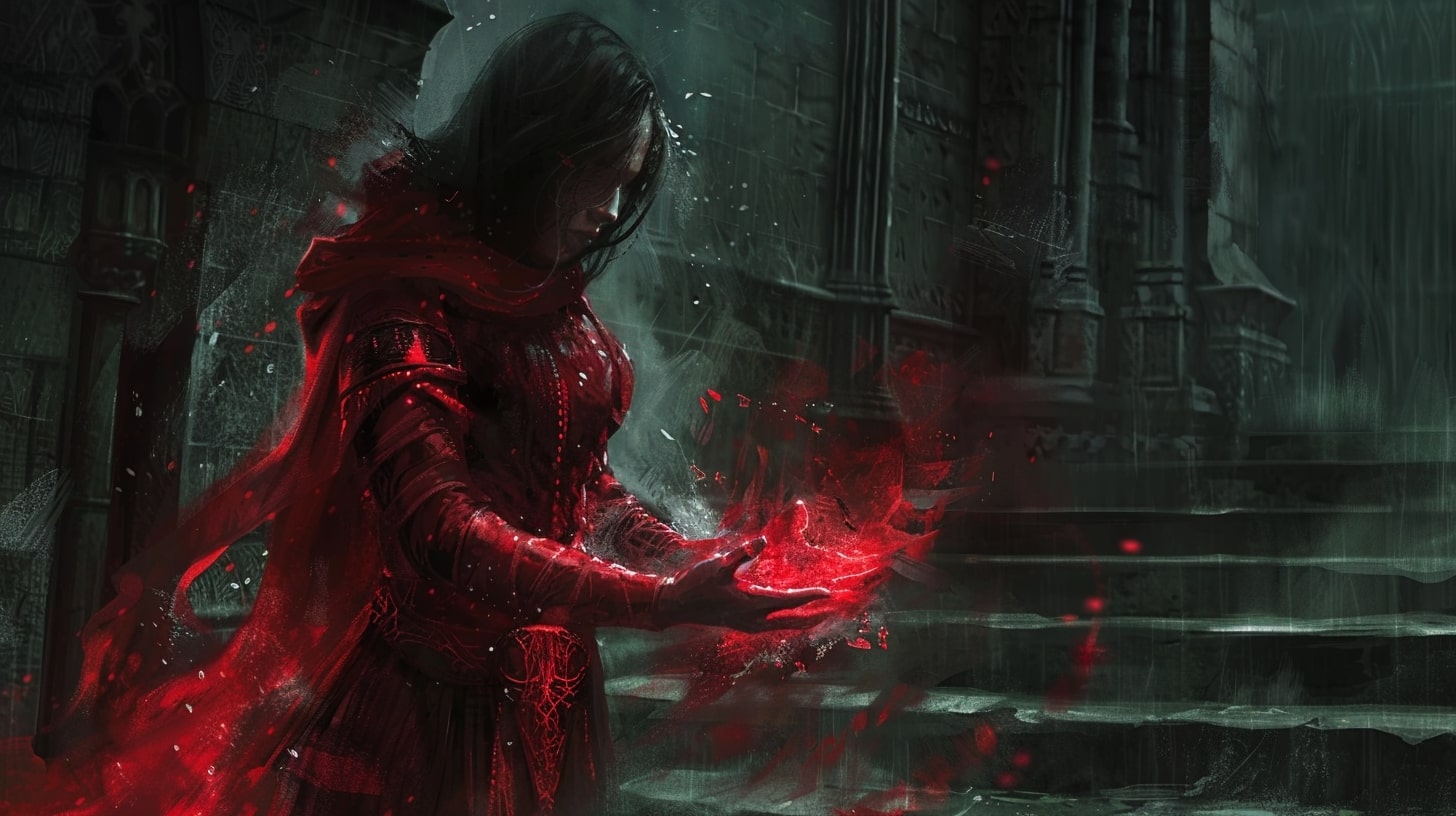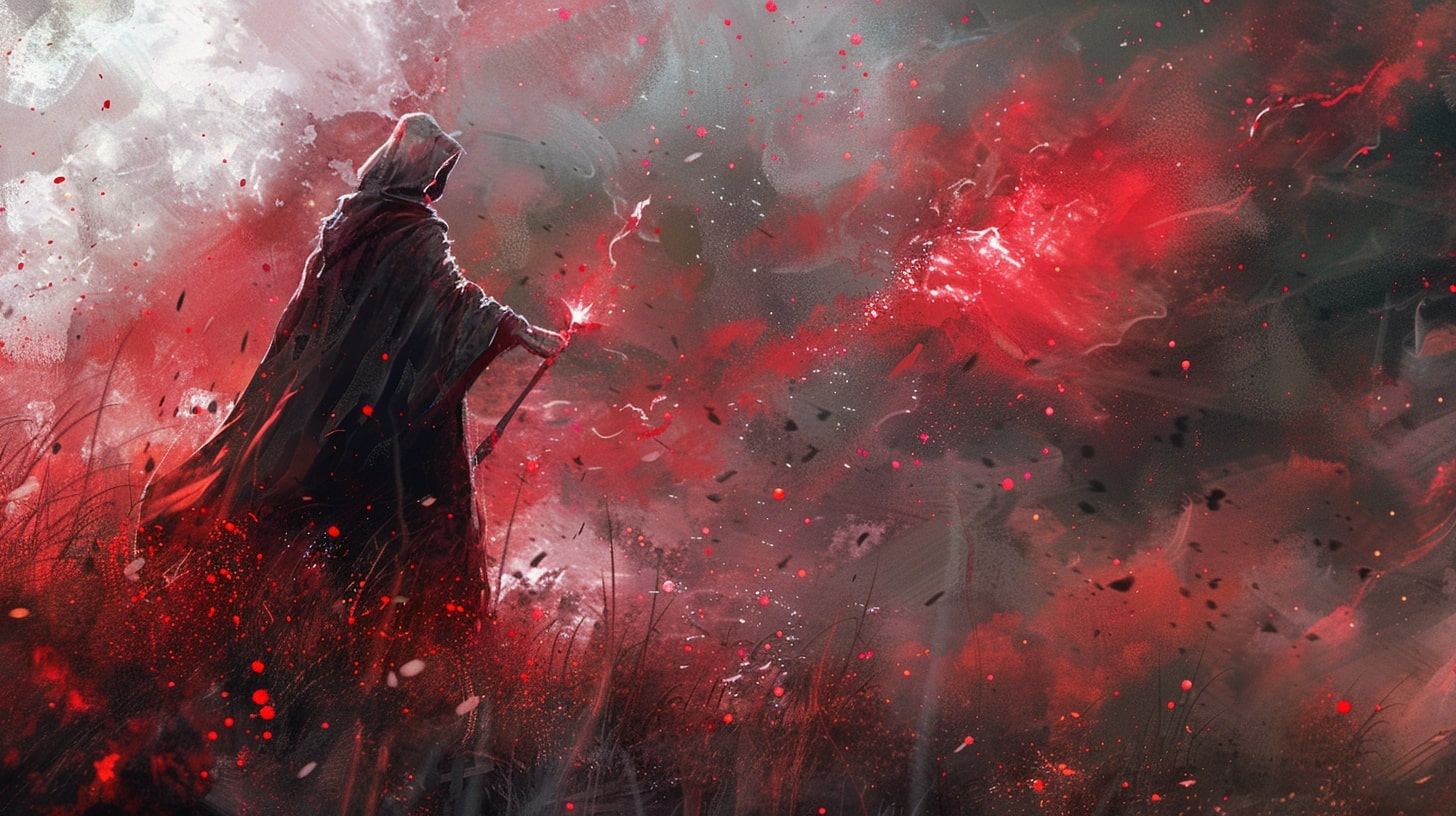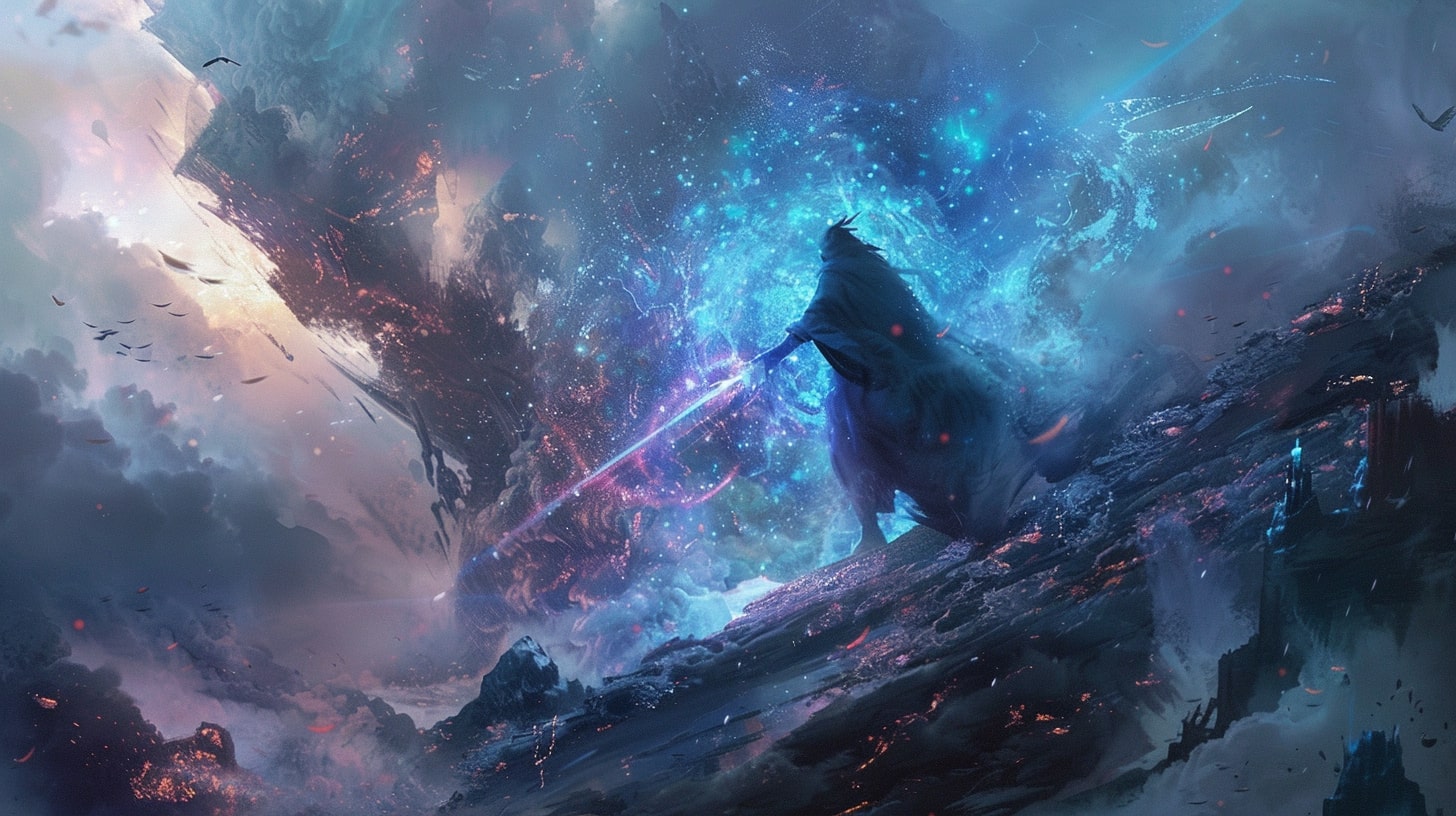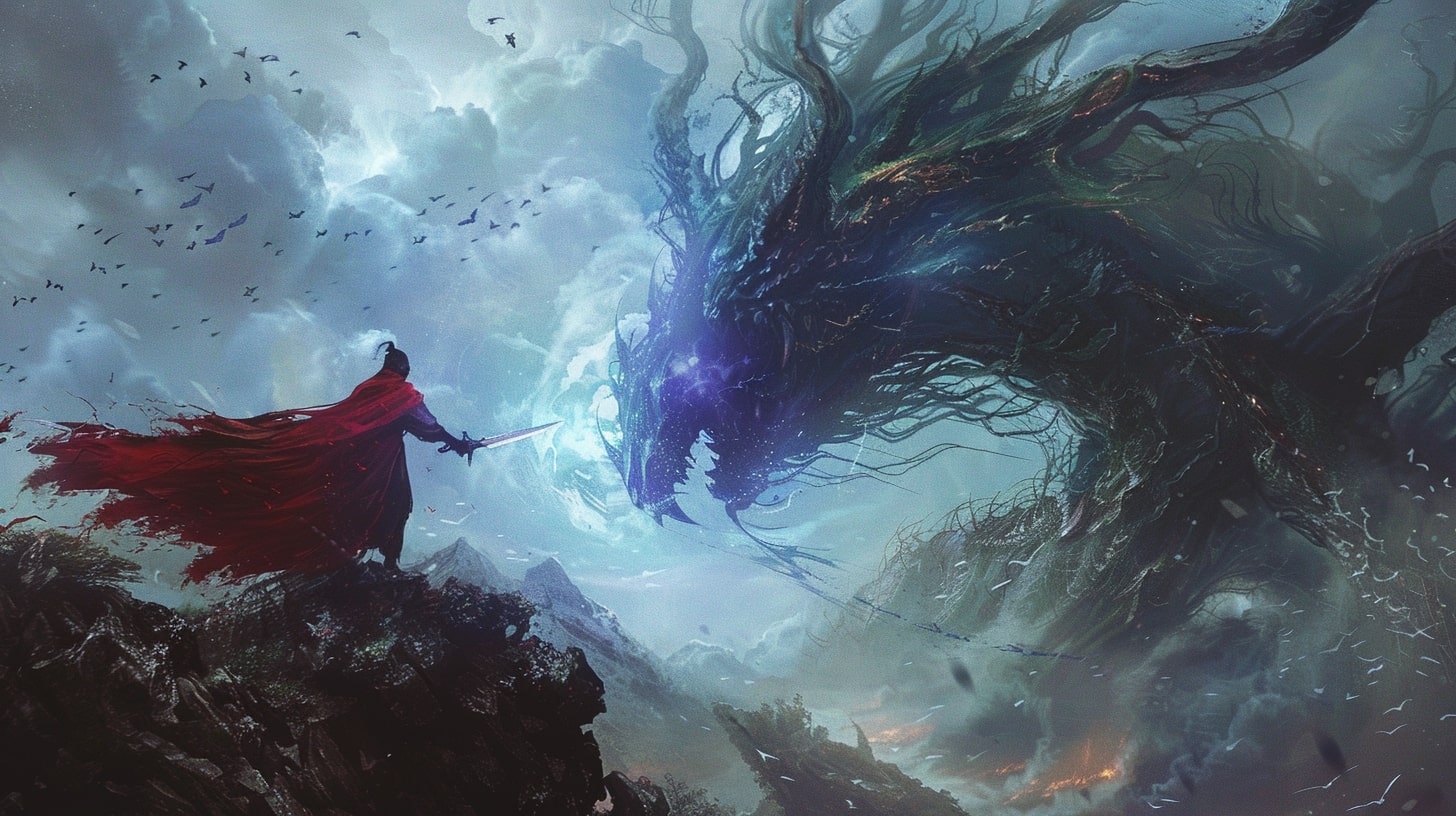Crafting a Magical Realm
In the realm of fantasy writing, magic systems are an integral part of creating immersive and captivating worlds. A well-crafted magic system can add depth and intrigue to your story, captivating readers and transporting them to a world filled with wonder and enchantment.
It is essential to understand the concept of balance in magic systems to ensure that they remain believable and consistent within the narrative. But what does it take to find magic system balance?
Let’s find out.
The Importance of Magic Systems in Fantasy Writing
Magic systems serve as the foundation for the fantastical elements in a fictional world. They provide a set of rules and principles that govern the use of magic by characters, shaping the dynamics and possibilities within the story. A thoughtfully designed magic system can contribute to the overall worldbuilding, enhancing the depth and richness of the fictional realm.
Magic systems allow you to explore themes of power, morality, and personal growth. They can create tension and conflict within the story, as characters grapple with the consequences of their magical abilities. By establishing a coherent and well-defined magic system, you can engage readers and immerse them in a world where the extraordinary becomes plausible.
To create a compelling magic system, it is crucial to strike a balance between the awe-inspiring capabilities of magic and its limitations. This balance ensures that magic remains a consistent and believable force within the narrative, preventing it from becoming an arbitrary solution to every problem. By establishing clear boundaries, you can create opportunities for tension, character development, and strategic thinking.
Understanding the Concept of Balance in Magic Systems
Balance is a key element in designing a magic system that feels authentic and coherent. It involves establishing a harmony between the power of magic and the challenges it presents. A well-balanced magic system avoids becoming too overpowering or underwhelming, providing opportunities for characters to grow, adapt, and face meaningful obstacles.
To achieve balance, consider the following aspects:
Magic Source and Limitations: Define the source of magic in your world and establish limitations on its availability or accessibility. For example, magic might be tied to specific individuals, require external elements, or be influenced by celestial events. By establishing limitations, you prevent magic from becoming an unlimited resource and introduce constraints that characters must navigate.
Magic Abilities and Restrictions: Determine the scope and nature of magical abilities within your world. Are there specific types of magic, such as elemental magic or divine magic? Are there inherent risks or consequences associated with certain spells or actions? By defining the abilities and restrictions of magic, you can create a system where characters must make choices and face consequences for their actions.
By carefully considering the balance of your magic system, you can create a compelling and internally consistent world that captivates readers. Remember, achieving balance is an iterative process that may require revisiting and refining your magic system as you develop your story. Seeking feedback from beta readers or fellow writers can provide valuable insights and perspectives on the effectiveness of your magic system.
In the following sections, we will explore the various elements of magic system balance, common pitfalls to avoid, and strategies for achieving a harmonious and engaging magical realm.

Elements of Magic System Balance
In order to create a well-balanced magic system in your fictional world, it’s important to consider two key elements: the magic source and limitations and the magic abilities and restrictions.
Magic Source and Limitations
Every magic system needs a source from which magic is derived. This source can be anything from the elements, such as fire or water, to more abstract concepts like emotions or cosmic forces. By defining the source, you establish the foundation of your magic system.
It’s crucial to establish clear limitations on the use of magic within your world. Limitations can include the amount of magic available, the energy required to perform spells, or the specific conditions under which magic can be used. These limitations help create tension and prevent the magic from becoming overpowered. For more ideas on magic system concepts, check out our article on magic system ideas.
| Magic Source | Limitations |
|---|---|
| Elemental Magic | Limited by availability of elemental sources |
| Blood Magic | Requires sacrifice or blood rituals |
| Divine Magic | Restricted to those chosen by deities |
| Arcane Magic | Demands extensive study and knowledge |
Magic Abilities and Restrictions
Another important aspect of balancing a magic system is defining the abilities and restrictions of magic users. Magic abilities can range from elemental manipulation to telekinesis or healing. These abilities should be consistent with the source of magic and the overall theme of your world.
To maintain balance, it’s important to establish restrictions on the use of magic abilities. These restrictions can include the need for verbal or somatic components, the requirement of specific objects or rituals, or the existence of negative consequences for using magic. By setting these restrictions, you create a sense of realism and prevent magic from becoming too convenient.
Consider the following table which highlights examples of magic abilities and their corresponding restrictions:
| Magic Ability | Restrictions |
|---|---|
| Fire Manipulation | Requires an open flame as a focal point |
| Telepathy | Limited to a specific range or line of sight |
| Shape-shifting | Limited to a specific form or animal type |
| Healing | Drains the energy or life force of the healer |
By carefully considering the magic source, limitations, abilities, and restrictions, you can create a balanced and believable magic system for your fictional world. Remember to keep the internal rules of your magic system consistent throughout your writing to maintain the integrity of your world. For more guidance on magic system development and design, refer to our articles on magic system development and magic system design.

Balancing Magic in the World
To create a believable and engaging magical realm in your fantasy writing, it’s essential to ensure that magic is balanced within the world you’ve crafted. This balance can be achieved through maintaining consistency and internal rules and considering the impact of magic on society and power dynamics.
Consistency and Internal Rules
Consistency is key when it comes to magic systems. Establishing clear internal rules for how magic works in your world helps create a sense of believability and coherence. These rules should govern how magic is accessed, used, and its limitations. By defining these rules, you provide a framework that readers can understand and follow throughout your story.
Consider the source and limitations of magic within your world. Is magic derived from the elements, like in an elemental magic system? Are there specific rituals or incantations required to perform magic? Are there any magic system limitations that prevent characters from becoming too powerful or reliant on magic? By answering these questions, you can establish boundaries and maintain balance within your magical realm.
To illustrate the consistency of your magic system, you may find it helpful to create magic system charts or tables that outline the rules, limitations, and abilities associated with different types of magic. These visual aids can provide a quick reference for both you as the writer and your readers.
Impact on Society and Power Dynamics
Magic can have profound effects on society and power dynamics within your fictional world. The presence of magic can create a divide between those who possess magical abilities and those who do not. Explore how magic affects different social classes, cultures, and institutions. Consider the hierarchy and power structures that may emerge as a result of magic. For example, in a society where magical ability is inherited, there may be a magic system hierarchy that determines social status and influence.
Additionally, think about the potential conflicts and tensions that may arise due to disparities in magical power. How do individuals without magic navigate a world where magic is prevalent? How do those with magical abilities use their powers and how does it affect their relationships with others? These considerations add depth and realism to your world, making it more immersive for your readers.
By carefully balancing the impact of magic on society and power dynamics, you can create a rich and dynamic backdrop for your story. It adds complexity to the world and provides opportunities for character development and conflict.
Remember to refer to our articles on magic system rules and magic system limitations for more guidance on creating and maintaining balance within your magical realm.
In the next section, we will explore some common pitfalls and challenges that writers encounter when balancing magic systems, as well as strategies for achieving the ideal balance in your world.

Common Pitfalls and Challenges
When it comes to magic system balance, there are common pitfalls and challenges that fantasy writers must be aware of. These challenges can impact the believability and effectiveness of your magic system. Two key pitfalls to avoid are overpowered magic systems and lack of limitations and consequences.
Overpowered Magic Systems
An overpowered magic system occurs when the magic users in your fictional world possess abilities that are too strong or lack appropriate limitations. While it may be tempting to create characters with immense power, it can lead to an imbalance in storytelling. Overpowered magic systems can undermine tension, conflict, and the overall stakes of your narrative.
To avoid this pitfall, it’s important to establish clear boundaries and limitations for your magic system. Define the extent of the magic users’ abilities and establish rules that govern their use. This will help maintain a sense of balance and ensure that the challenges your characters face are meaningful and impactful.
Lack of Limitations and Consequences
A magic system without limitations and consequences can feel unrealistic and less engaging for readers. Without proper boundaries, magic can become a convenient solution for every problem, diminishing the tension and suspense within your story. It’s crucial to establish the limitations and consequences of magic within your world.
Consider the costs or sacrifices associated with using magic. This could include physical or mental exhaustion, the need for specific ingredients or rituals, or even a loss of personal connections. By incorporating these limitations and consequences, you add depth to your magic system and create opportunities for character growth and development.
By recognizing and avoiding these common pitfalls, you can ensure that your magic system is well-balanced and enhances the overall narrative of your fictional world. To further explore the intricacies of magic system creation and balance, check out our article on magic system development for valuable insights and tips.
Strategies for Achieving Balance
When it comes to creating a balanced magic system in your fictional world, there are several strategies you can employ. These strategies will help you define clear rules and boundaries for your magic system and ensure the growth and development of your characters within that system.
Defining Clear Rules and Boundaries
To achieve balance in your magic system, it’s important to establish clear rules and boundaries for how magic works in your world. This includes determining the source of magic, the limitations and restrictions placed on its use, and the consequences of wielding magic.
Start by considering the source of magic. Is it derived from natural elements, like the elements of nature or the arcane forces? Or is it bestowed upon individuals by divine entities? Defining the source will give your magic system a foundation and help you establish its inner workings.
Next, establish the limitations and restrictions on magic. Are there specific conditions or requirements that must be met in order to use magic? Are there certain spells or abilities that are prohibited or restricted? By clearly defining these limitations, you can prevent your magic system from becoming overpowered and ensure that it remains balanced.
Lastly, consider the consequences of using magic. Does using magic drain the user’s energy or have long-term effects on their health? Are there societal or cultural implications for individuals who possess magical abilities? By incorporating consequences, you add depth and realism to your magic system.
Character Development and Growth
Another key strategy for achieving balance in your magic system is through character development and growth. Your characters should not be static when it comes to their magical abilities. As they progress through their journey, they should face challenges and obstacles that force them to grow and learn.
Allow your characters to start with limited or basic magical abilities and gradually develop them over time. This progression can come through training, mentorship, or self-discovery. By showing the growth of your characters’ magical abilities, you create a sense of balance and avoid making them too powerful too quickly.
Furthermore, intertwine the development of magical abilities with the personal growth of your characters. Let their experiences and choices shape not only their magical prowess but also their values, beliefs, and relationships. This integration of character development and magical growth adds depth and complexity to your story.
By employing these strategies, you can achieve a balanced magic system in your fictional world. Remember to define clear rules and boundaries for your magic system and allow for character development and growth. These elements will ensure that your magic system remains engaging and believable throughout your story. For more inspiration and ideas on magic system creation, check out our article on magic system ideas.
Mastering Magic System Balance
Creating a well-balanced magic system is an ongoing process that requires careful consideration and revision. To achieve the desired balance in your fictional world, you should follow an iterative process and seek feedback from beta readers.
Iterative Process and Revision
Developing a balanced magic system is not a one-time task but an iterative process. As you craft your magic system, it’s essential to continuously evaluate and refine its elements. Start by defining clear rules and boundaries for your magic system, considering factors such as magic source, limitations, and abilities. Ensure that these elements remain consistent throughout your storytelling.
During the revision process, critically analyze the various aspects of your magic system. Examine its impact on your story’s world and characters, and assess whether it aligns with the narrative you wish to convey. Look for any inconsistencies or areas where the balance may be off. Through a series of revisions, you can fine-tune your magic system, making it more cohesive and engaging for readers.
Seeking feedback from trusted individuals such as beta readers or fellow writers can provide valuable insights. They can offer fresh perspectives and identify potential issues or areas for improvement that you may have overlooked. Engage in discussions, listen to their suggestions, and be open to constructive criticism. Remember that constructive feedback can be instrumental in helping you achieve the optimal balance in your magic system.
Seeking Feedback and Beta Readers
Sharing your work with beta readers is a fantastic way to gain valuable feedback on your magic system. Beta readers can provide insights into how well your magic system resonates with the audience and whether it effectively contributes to the overall story. Their feedback can help you identify any weaknesses or inconsistencies and guide you in refining your magic system to achieve better balance.
When selecting beta readers, consider individuals who have an interest in fantasy literature and an understanding of magic systems. Look for readers who are willing to provide honest and constructive feedback. It’s also helpful to have a diverse group of beta readers to gather different perspectives and insights.
Provide your beta readers with specific questions or prompts to guide their feedback. Ask them to evaluate the believability and consistency of your magic system, its impact on the story and characters, and whether any aspects feel overpowered or underdeveloped.
Remember, the feedback you receive from beta readers is a valuable tool, but ultimately, the decisions about your magic system lie with you as the author. Use the feedback to inform your revisions and make adjustments that align with your creative vision.
By following an iterative process and seeking feedback from beta readers, you can master the balance of your magic system, creating a captivating and harmonious fictional world. Remember to check out our article on magic system development for more guidance on crafting an engaging magic system.










